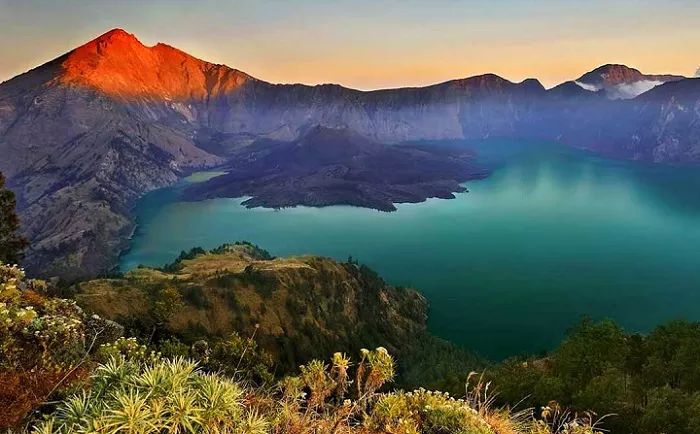Lombok, Indonesia — Authorities in Indonesia have introduced new restrictions on the number of hikers permitted to access Mount Rinjani, an iconic volcano located on the island of Lombok, in a move to safeguard the environment amid rising tourist interest.
Mount Rinjani, recently named among Lonely Planet’s top trekking destinations for 2025, will now operate under a daily quota system. The policy, announced by Indonesian Minister of Forestry Raja Juli Antoni, aims to prioritize ecological sustainability over mass tourism.
“Mount Rinjani plays an important role as a conservation economic area. Therefore, it must prioritise sustainability and ecological balance,” Minister Antoni stated. The new regulations apply not only to Mount Rinjani National Park but extend to national parks across the country.
Despite concerns from some tourism operators, Antoni emphasized that the restrictions are designed to attract quality tourism rather than deter visitors. “We’ve limited it to maintain the existing ecosystem and ecology so that the natural beauty of Rinjani remains well-maintained and becomes more beautiful, so that more and more people come here,” he explained.
In response to increasing demand, the Senaru Tour Operators Association had petitioned the Forestry Office in Mataram to increase the daily trekking quota from 150 climbers. While their request for an unlimited quota during peak seasons was denied, authorities agreed to raise the total number to 700 hikers per day across various routes.
Under the revised quota, the Senaru, Torean, and Sembalun routes each have a daily capacity of 100 hikers. The less frequented trails—Timbanahu, Tete Batu, and Aiq Beriq—are also allocated 100 hikers per day each.
Meanwhile, neighboring Bali has not implemented similar restrictions on its mountains and volcanoes. In June 2023, Bali Governor Wayan Koster proposed a ban on all tourist activities across the island’s 22 volcanic sites, including Mount Batur, Mount Agung, Mount Abang, and Mount Batukaru. However, the proposal was quickly withdrawn following industry backlash.
Mount Batur, one of Bali’s most popular destinations, continues to attract between 200 to 300 climbers daily, with numbers occasionally peaking at over 500 during sunrise hours on weekends and during high season.
Authorities in Bali have enforced strict regulations requiring all hikers to be accompanied by a licensed local guide. Climbing without one is not only illegal but also considered dangerous, particularly on peaks like Mount Agung and Mount Batur. Several tourists caught violating these rules have faced swift deportation.
Mount Agung, a sacred site for the Balinese, is occasionally closed to the public to accommodate spiritual ceremonies. Most recently, all routes were closed from April 6 to May 3, 2025, to allow for cleansing rituals. The volcano has since reopened to guided hikes.
With the introduction of stricter environmental regulations on Mount Rinjani and the continued enforcement of hiking laws in Bali, Indonesian officials are signaling a firm commitment to balancing tourism with long-term ecological preservation.


